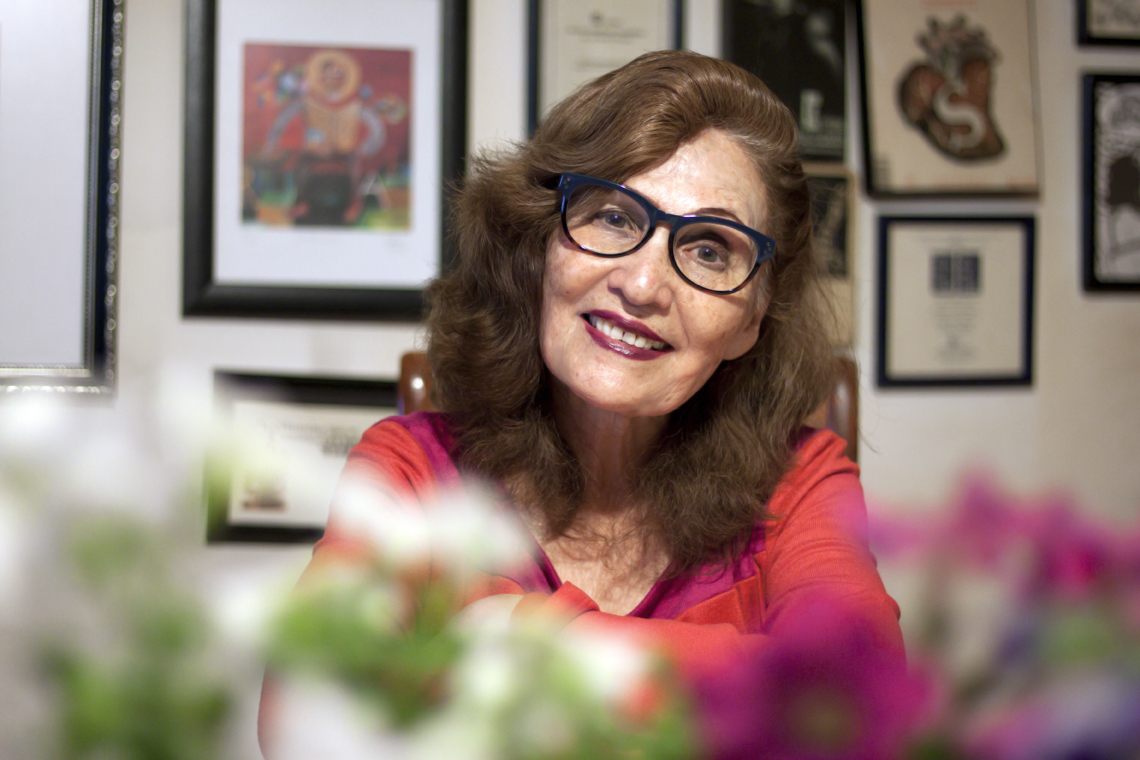If you have the privilege of being able to watch him work on and the performance that follows, you will notice his tremendous calmness, patience, the many eye contacts with the musicians, his demands and encouragement and the sometimes necessary factual and knowledgeable commentary.
Music is inextricably linked with Reto Cuonz. Getting to know each other and dealing with things began for him at primary school age, for example when he was a ten-year-old concert-goer with his parents at the Braunwalder Musikwoche and watched the shaping of highly qualified instrumentalists. He remembers the «Végh Quartet». The treble recorder lessons followed, Yvonne Degen, the wife of the village teacher at the time, Hans Degen, was his teacher, who strongly advised him not to learn the flute – even if the instrument looked so noble to Reto Cuonz. She recommended that he learn to play the cello, as there is not so much willing to learn.
Finding a private tutor from Braunwald was anything but easy. Johannes Kobelt in Mitlödi was the first teacher – after all, attending this class was linked to a trip to the valley, once a week. As a result of Johannes Kobelt’s move to St. Gallen, Reto Cuonz switched to Regula Eidenbenz and – after founding the Glarus Music School – to Ursula Reichel – before he could continue teaching with Johannes Kobelt.
Then it went on in a slight “zigzag course”, which had its advantages. In the Kanti Glarus he met Christoph Kobelt. The path to comprehensive music was thus initiated. The close friendship between the adolescents was formative: long mountain tours, choir singing, dealing with romantic-symphonic literature. Primary school teachers and deputies at the Glarus secondary school for a year were something of a stopover. Reto Cuonz attended Jakob Kobelt’s cantor school and then decided to study the cello with Claude Starck at the Zurich University of Music. The two-year conducting training in Olga Géczy’s class also falls during this period. With Johann Sonnleitner, the professor for harpsichord, he took courses in historical performance practice. There he met the cellist Christophe Coin, with whom he studied baroque cello, first in Paris and then at the Schola Cantorum Basiliensis.
For him, the musical path leads through many stations that have deepened and enriched his knowledge in a valuable formative way. It is certainly a stroke of luck that this argument has brought us back to the Glarnerland. Until his retirement he taught a small amount at the Glarus Music School and was able to take up and implement a lot of things that had started with his early years of “learning and traveling”. Enumerating them is like opening a richly filled music book. The “chapters” are: Christoph Kobelt and director of the Glarus youth choir at the time; Peter Eidenbenz, music teacher at the Cantonal School in Glarus and conductor of the Glarus Chamber Choir; Bach cantatas, Christmas oratorio, folk songs, Bach’s mass in B minor, tour of France with performances in Paris and Reims, the “Face of Isaiah” by Willi Burkhard. That can be continued: Direction of the Glarus Chamber Orchestra since 2015, participation in Ensemble la fontaine, direction of the Vocal Ensemble Hottingen as choirmaster and cantor at the Kreuzkirche in Zurich. Planned projects: Forty-part mottled “Spem in Alium” by T. Tallis from the 16th century, and the “Messiah” by Handel. Corona has put a thick line through carefully planned things – a painful turning point for all those affected. And there is something else to do. Reto Cuonz points to a talented project with the Glarus Chamber Orchestra in collaboration with the Glarus Music School and the opera project “Fiorina” by Carlo Pedrotti.
Reto Cuonz is now retired, his diverse work sometimes leaves him with little time to pause or lean back. There would be “Glarus – London simply” with an illustrious Glarus cast on June 27th in the Freulerpalast in Näfels, the past and probably future singing weeks on the occasion of the Braunwald Music Week with valuable compositions by Handel and Purcell, musical accompaniments and more.
And when Reto Cuonz raves about an almost intoxicatingly rich variety in retrospect, it is absolutely understandable. Reto Cuonz begins with the ensembles ad fontes and la fontaine, beginning in 1989, with baroque performance practice and oratorio projects, with concerts and recordings in and around France. They went together so well. And there was a continuation in 1997, when Cuonz founded the vocal ensemble Hottingen Zurich.
And music accompanies, carries with you, is so contagious that even his children join in and perhaps accompany Reto Cuonz on one of his beloved hikes, mountain and ski tours and sometimes hear what is planned for the future. Corona at the moment means: renouncing, redesigning programs, dealing with cancellations and postponements, renouncing choir rehearsals, severely limited rehearsals with the orchestra people – and the hope for a permanently better change.
–

